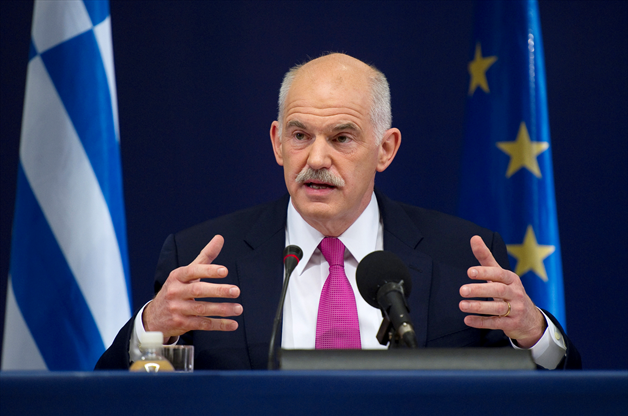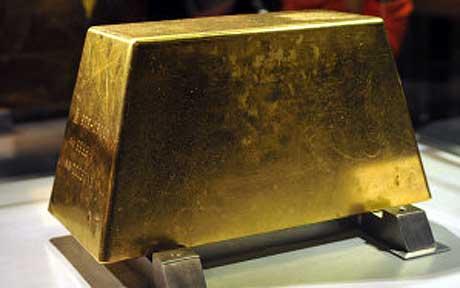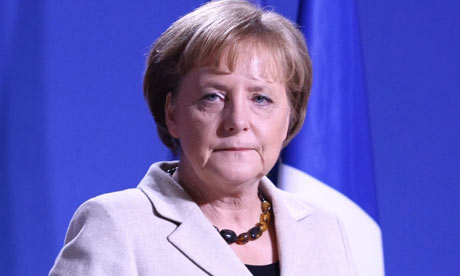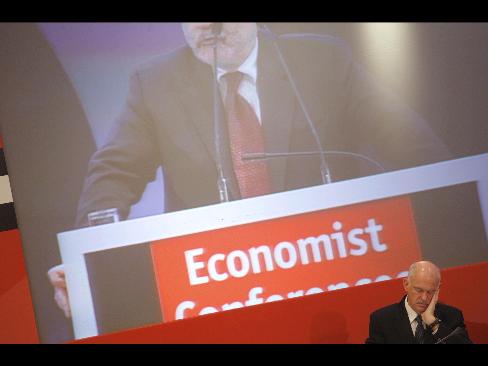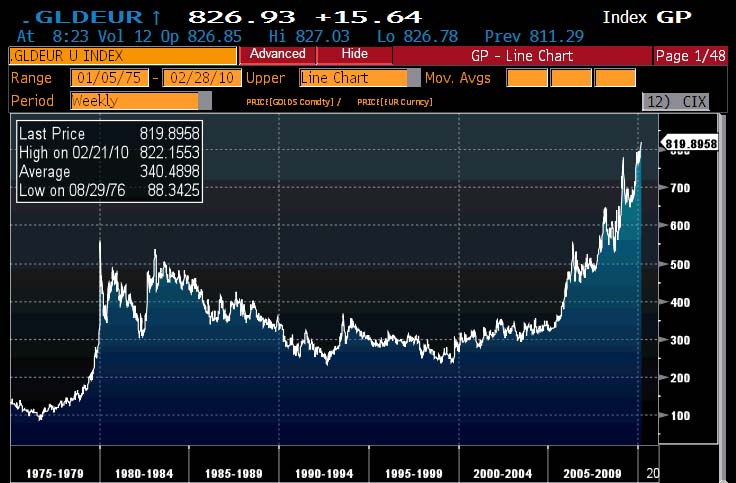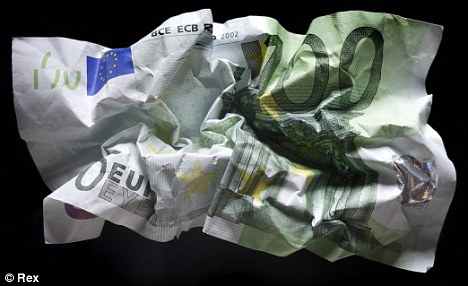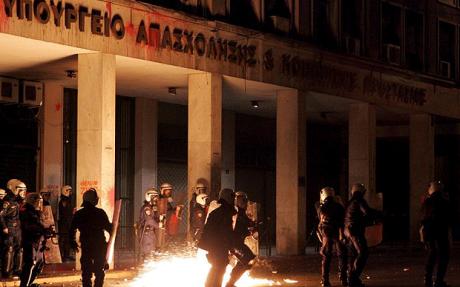Don’t miss:
European Central Bank President Jean-Claude Trichet at the Council on Foreign Relations in New York, on April 26, 2010:
Translation via Helen Skopis of the recent interview with Max Keiser in Proto Thema newspaper in Athens.
Article in Proto Thema online – April 23, 2010 By Vassili Daliani
“The IMF is a Financial Mafia”
At a time when Greece is being dragged through the mud by the international press, Max Keiser, one of the most radical and outspoken financial analysts, stands by our side and talks openly about a “financial mafia” and “financial terrorists” that drove this country to its destruction.
As a former Wall Street broker for almost 25 years, he knows how the financial system operates. Max Keiser had foreseen the financial collapse of Iceland, he asks for the arrest of Goldman Sachs bankers and encourages Greeks to hold a referendum on whether the country should turn to the International Monetary Fund.
He is a presenter of financial shows on major worldwide TV networks, including the BBC, the English Al Jazeera and Russia Today. Max Keiser told “THEMA” that the government’s measures are unsubstantial maintaining that the IMF will impose the real measures. He believes that Greece is a country that will be sacrificed by the international markets and urges the Greek people to fight this prospective.
PT: Is the International Monetary Fund Greece’s only solution, or are there other alternatives?
MK: The only solution for Greece is to arrest the Goldman Sachs bankers immediately and all those involved in the fabrication of Greek economic data in 2000, when you became a member of the eurozone. The next step is to nationalize all banks like Sweden did in 1993. The International Monetary Fund is that last thing you need. You will lose your sovereignty. It exercises terrorism. You will be raped in such a way, that it will be the worst pain you have ever felt.
PT: There are those who believe that the IMF is not the “bad wolf” but the only solution for Greece
MK: If someone burns down your house in order to sell you charcoal, would you consider this logical? That is exactly what Goldman Sachs did to the Greek economy. They burned you down like arsonists and then they tell you not to worry they’ll give you charcoal. It’s outrageous. The IMF has said that it can provide Greece with help. The Wall Street investment hedge funds are attacking Greece’s bond market so that the Greek economy collapses. And they’re doing this for a simple reason; to force the Greek people to ask for help from the IMF. The IMF will say, we came because you asked for our help. Wall Street bankers work very closely with the IMF. It’s a financial mafia and the hedge funds are the assassins. Research conducted on Goldman Sachs in the USA and in Europe show how big a mafia it is. They are involved in illegal activity throughout the world.
PT: Where is the European Union? How would you explain the stance of France and Germany?
MK: Germany is on the side of the Wall Street bankers. Germany doesn’t care about Greece or the euro. The euro replaced a cheap capital in order to uphold competitiveness in its export market. As long as Greece is a problem, the euro falls, which is something that is in Germany’s interest.
The European Union and the euro are competing with the dollar. Unfortunately, the crisis will destroy the euro. The financial terrorists on Wall Street intend to destroy Portugal, and other countries, after Greece. The destruction of the euro will allow the dollar to be the only international currency, the only fiscal reserve. If a country wants to buy petroleum, it must purchase dollars first. If a country wants to buy copper, it must purchase dollars first. Because these and many other commodities are only sold in dollars. This means that the U.S. is making a continuous profit. The whole world is obliged to buy dollars. The euro threatened the empire of the dollar. It was naturally not appreciated by Wall Street bankers. They are using the crisis to destroy the euro. The Greek people must stand up to the bankers, just like the Icelandic people did.
Read moreMax Keiser on Greece: ‘The IMF is a Financial Mafia’



